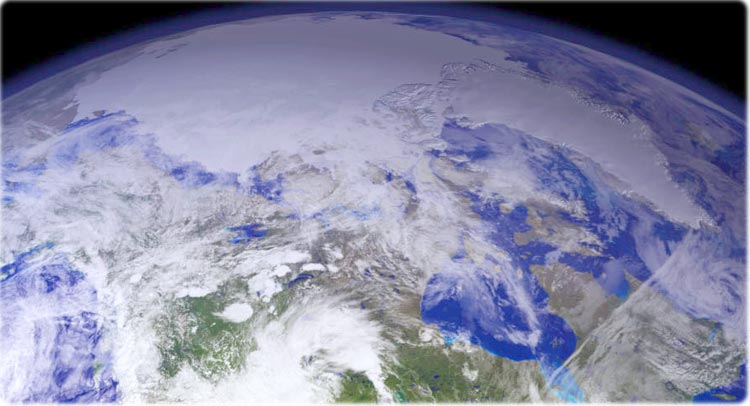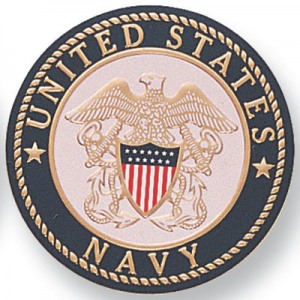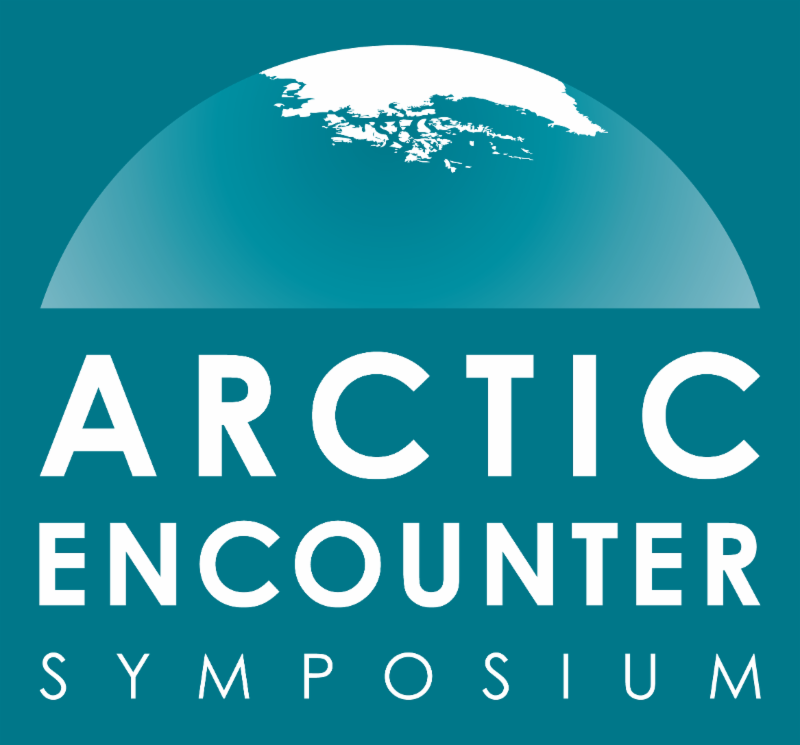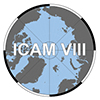|
|
|
|
|
|
|
|
No Arctic science event is announced for today.
|
Media
OA Tribal Research Working Group Leads Discussion, Tours Seward Lab. Members of the Alaska Ocean Acidification Network Tribal Working Group led a discussion at the Alaska Forum on the Environment on tribal efforts to monitor ocean acidification in the nearshore environments. Davin Holen, from the Alaska Ocean Acidification Network Executive Committee, led a general discussion on ocean acidification impacts and monitoring efforts statewide, which are mainly focusing offshore, and then Jeff Hetrick of the Alutiiq Pride Shellfish Hatchery and Esther Kennedy described their monitoring programs in the nearshore environments. Alaska Ocean Acidification Network
 Can We Refreeze the Arctic? Scientists are Beginning to Ask. Can We Refreeze the Arctic? Scientists are Beginning to Ask. Each summer, residents of the Swiss Alps make their way through the mountains to the edge of the famous Rhône Glacier. There, fleecy white blankets in hand, they cover up the ice. They're trying to reflect the sun and prevent the glacier from melting. The Rhône is one of many glaciers around the world that have noticeably shrunk in recent decades. The blankets are a simple fix, but they seem to help - Swiss glaciologist David Volken has previously suggested to Agence France-Presse that they may reduce melting by up to 70 percent. E&E News
Pricey Projects Loom for Alaska as Erosion Threatens Runways, Roads and More. Alaska transportation engineers are facing a long list of increasingly urgent and costly public projects meant to solve climate-change related problems -imperiled runways, warped roads and even a mile-long mass of frozen debris sliding toward a highway. "There's a lot of challenges out there, and there's more challenges than funding," said Ryan Anderson, northern region director for the Alaska Department of Transportation and Public Facilities, at a Climate Action for Alaska Leadership Team workshop in Anchorage last week. Anchorage Daily News
 Navy's Arctic Ice Exercise Features Multinational Participation. Navy's Arctic Ice Exercise Features Multinational Participation. Submarine Force Pacific officially kicked off Ice Exercise 2018 in the Arctic Ocean with the construction of temporary Ice Camp Skate off the northern Alaskan coast and the arrival of two U.S. Navy fast-attack submarines and one British Royal Navy submarine, March 7.ICEX is a five-week exercise held every two years that allows the Navy to assess its operational readiness in the Arctic, increase experience in the region, advance understanding of the Arctic environment and continue to develop relationships with other services, allies and partner organizations. US Department of Defense
EUCOM Chief: 'We Are Not Keeping Pace' With Russia in Balkans, Arctic. The top U.S. military commander in Europe said Thursday that he is worried about the potential for new unrest in the Balkans, where there are signs that Russia is stepping up influence operations as the U.S. has lost focus on the region. "The area I am concerned about today is the Balkans actually," U.S. European Command's Gen. Curtis M. Scaparrotti said. "Russia is at work in the Balkans and we have kind of taken our eye off the area." Stars and Stripes
|
|
Future Events
Methane Variation Over Terrestrial and Marine Arctic Areas (2010-2016): IASI Satellite Data, March 13, 2018 (Silver Spring, Maryland USA). There is evidence that methane is being released into the atmosphere at high northern latitudes as the Arctic warms up. Methane concentration in the Arctic lower troposphere was estimated between 2010 and 2016 with the Infrared Atmospheric Sounding Interferometer (IASI), a thermal IR spectrometer orbiting the Earth on a satellite MetOp-A. The area studied encompasses the Barents/ Kara seas and the Wester Siberian Lowland (WSL), one of the most important methane sources in high northern latitudes. This event is a NOAA's National Ocean Service Science Seminar.
** New this week ** Preparing for a Northwest Passage; The Role of New England in Navigating the New Arctic, March 25-27, 2018 (Durham, New Hampshire USA). This workshop pairs two of NSF's 10 Big Ideas: "Navigating the New Arctic" and "Growing Convergence Research at NSF." During this event, participants will assess economic, environmental, and social impacts of Arctic change on New England and establish convergence research initiatives to prepare for, adapt to, and capitalize on these effects. Shipping routes through an ice-free Northwest Passage in combination with modifications to ocean circulation and regional climate patterns linked to Arctic ice melt will affect trade, fisheries, tourism, coastal ecology, air and water quality, animal migration, and demographics not only in the Arctic but also in lower latitude coastal regions such as New England. With profound changes on the horizon, this is a critical opportunity for New England to prepare for uncertain yet inevitable economic and environmental impacts of Arctic change. Workshop website: here.
48th International Arctic Workshop 2018, April 5-6, 2018 (Boulder, Colorado USA). Hosted by the Institute of Arctic and Alpine Research (INSTAAR), University of Colorado The 2018 Arctic Workshop welcomes a community that includes all career stages - from student to distinguished world-class expert. The Arctic Workshop is open to all interested in high latitude environments, including those of the past, present, and future. Talks and posters on all aspects of Arctic science, social science, and engineering are invited, including Arctic and Antarctic climate, anthropology, atmospheric chemistry, engineering and infrastructure, environmental geochemistry, paleoenvironment, sociology, archeology, geomorphology, hydrology, glaciology, soils, ecology, oceanography, Quaternary history and more. If you are studying the Arctic, this is the conference for you.
 5th Annual Arctic Encounter Symposium (AES), April 19-20, 2018 (Seattle, WA, USA) 5th Annual Arctic Encounter Symposium (AES), April 19-20, 2018 (Seattle, WA, USA) - The Arctic Encounter, the largest annual Arctic policy conference in the U.S., will convene policymakers, industry leaders, scientists, Arctic artists and musical performers, and other stakeholders to debate and discuss emerging Arctic challenges and opportunities including policy, innovation, security, and development. The mission of AES is to raise awareness, engage challenges, and develop solutions for the future of the Arctic region and the people who live there. The 5th annual AES will take place in downtown Seattle at the Bell Harbor International Conference Center on Pier 66.
2018 North by North Festival, April 23-29, 2018 (Anchorage, Alaska USA). The North by North Festival captures the spirit of Alaska and the Arctic - to address our challenges and opportunities with Northern innovation and resilience, to build on a rich history and to ensure a future full of promise. The Festival is for the North, and organized by Northerners, with goals of sustainability, livability and growth. The Festival brings innovators from across Alaska, the nation and other Arctic regions to collaborate and address local and circumpolar challenges. Through knowledge, governance, business, design, film, music, food, literature and art, we celebrate the North.
Council on Earth Cryology, May 15-16, 2018 (Moscow, Russian Federation). Scientific council on Earth cryology of Russian Academy of Sciences together with Department of Geocryology of Faculty of Geology of Lomonosov Moscow State University, Institute of the Earth Cryosphere, the Tyumen Scientific Senter, Melnikov Permafrost Institute (Yakutsk) of the Siberian Branch of the Russian Academy of Science holds on May 15 - 16, 2018 an enlarged meeting with participation of the Russian and foreign scientists, engineers and experts: "Current problems of geocryology." The meeting of Scientific council on Earth Cryology of RAS has the status of the International meeting. The publication of materials in the collection of reports is planned. Submissions (Submission Form), offers on cooperation, support of a conference and papers (Sample of Paper) to e-mail: cryoconf18@gmail.com
The Effects of Climate Change on the World's Oceans, June 4-8, 2018 (Washington, DC USA). The 4th International Symposium will bring together experts from around the world to better understand climate impacts on ocean ecosystems - and how to respond. The event is hosted by a variety of groups including International Council for the Exploration of the Sea (ICES), N. Pacific Marine Science Organization (PICES), Intergovernmental Oceanographic Commission of UNESCO (IOC), and Food and Agriculture Organization of the United Nations (FAO).
 International Conference on Arctic Margins (ICAM) VIII, June 11-14, 2
The international Conference on Arctic Margins (ICAM) is a forum for earth scientists who study the Arctic. It was founded to help understand the little known Arctic geology and to foster cooperation and collaboration among Arctic researchers. There have been 7 meetings since its inception in 1991. See here for more information.
 POLAR 2018, June 15-27, 2018 (Davos, Switzerland).POLAR2018 is a joint event from the Scientific Committee on Antarctic Research (SCAR) and the International Arctic Science Committee (IASC). The SCAR meetings, the ASSW and the Open Science Conference will be hosted by the Swiss Federal Institute for Forest, Snow and Landscape Research WSL under the patronage of the Swiss Committee on Polar and High Altitude Research. The WSL Institute for Snow and Avalanche Research SLF is organizing POLAR2018. POLAR 2018, June 15-27, 2018 (Davos, Switzerland).POLAR2018 is a joint event from the Scientific Committee on Antarctic Research (SCAR) and the International Arctic Science Committee (IASC). The SCAR meetings, the ASSW and the Open Science Conference will be hosted by the Swiss Federal Institute for Forest, Snow and Landscape Research WSL under the patronage of the Swiss Committee on Polar and High Altitude Research. The WSL Institute for Snow and Avalanche Research SLF is organizing POLAR2018.
** New this week ** 5th European Conference on Permafrost, June 23-July 1, 2018 (Chamonix-Mont Blanc, France). In the continuation of the International and Regional conferences convened by the International Permafrost Association, the 5th European Conference on Permafrost (EUCOP 2018) will be held in Chamonix-Mont Blanc, France, 23rd June - 1st July 2018. The conference aims at covering all relevant aspects of permafrost research, engineering and outreach on a global and regional level. Conference website: here.
Arctic Observing Summit 2018, June 24-26, 2018 (Davos, Switzerland). The Arctic Observing Summit (AOS) is a high-level biennial summit that provides a platform to address urgent and broadly recognized needs of Arctic observing across all components of the Arctic system. AOS 2018 will be held in Davos, Switzerland ( June 24-26) and will focus on pressing issues in the implementation and support of sustained observations that can be addressed through a business-case lens. To that end, short submissions are requested that address any and all aspects of the overarching theme and sub-themes. Additional information can be found here.
17th International Congress of Circumpolar Health (ICCH17), August 12-15, 2018 (Copenhagen, Denmark). The ICCH congresses are held every third year in different locations in the circumpolar area and represent the largest scientific meetings worldwide on circumpolar health. The ICCH congresses serve as the primary source of information exchange and scholarly communication in issues relating to circumpolar health. More than 750 participants generally register and participate in each Congress, and more than 400 scientific papers or posters are usually presented.
UArctic Congress 2018, September 3-7, 2018 (Oulu and Helsinki, Finland).
The UArctic Congress 2018 will bring together key UArctic meetings and a science conference into one single gathering, including business meetings of the Council of UArctic, Rectors' Forum, Student Forum, and Thematic Networks & UArctic Institutes Leadership Team. The Congress is an integral part of the Finland's Arctic Council chairmanship program, and open to the public. The event will highlight the themes and priorities of the Finnish chairmanship, including the goals of the United Nations' 2030 Agenda for Sustainable Development, and the Paris Agreement under the UN Framework Convention on Climate Change.
The second Arctic Biodiversity Congress is hosted by the Conservation of Arctic Flora and Fauna (CAFF), the biodiversity working group of the Arctic Council, and the Ministry of the Environment, Finland. The second Arctic Biodiversity Congress will build on the success of the first Congress, held in 2014 in Trondheim, Norway, and will bring together scientists, policymakers government officials, Indigenous representatives, Traditional Knowledge holders, industry, non-governmental organizations, and others to promote the conservation and sustainable use of Arctic biodiversity.
|
|

  
4350 N. Fairfax Drive, Suite 510
Arlington, VA 22203, USA
External links in this publication, and on the USARC's World Wide Web site ( www.arctic.gov) do not constitute endorsement by the US Arctic Research Commission of external Web sites or the information, products or services contained therein. For other than authorized activities, the USARC does not exercise any editorial control over the information you may find at these locations. These links are provided consistent with the stated purpose of this newsletter and the USARC Web site.
|
|
|
|
|
|
|
|
|
 Can We Refreeze the Arctic? Scientists are Beginning to Ask. Each summer, residents of the Swiss Alps make their way through the mountains to the edge of the famous Rhône Glacier. There, fleecy white blankets in hand, they cover up the ice. They're trying to reflect the sun and prevent the glacier from melting. The Rhône is one of many glaciers around the world that have noticeably shrunk in recent decades. The blankets are a simple fix, but they seem to help - Swiss glaciologist David Volken has previously suggested to Agence France-Presse that they may reduce melting by up to 70 percent. E&E News
Can We Refreeze the Arctic? Scientists are Beginning to Ask. Each summer, residents of the Swiss Alps make their way through the mountains to the edge of the famous Rhône Glacier. There, fleecy white blankets in hand, they cover up the ice. They're trying to reflect the sun and prevent the glacier from melting. The Rhône is one of many glaciers around the world that have noticeably shrunk in recent decades. The blankets are a simple fix, but they seem to help - Swiss glaciologist David Volken has previously suggested to Agence France-Presse that they may reduce melting by up to 70 percent. E&E News Navy's Arctic Ice Exercise Features Multinational Participation. Submarine Force Pacific officially kicked off Ice Exercise 2018 in the Arctic Ocean with the construction of temporary Ice Camp Skate off the northern Alaskan coast and the arrival of two U.S. Navy fast-attack submarines and one British Royal Navy submarine, March 7.ICEX is a five-week exercise held every two years that allows the Navy to assess its operational readiness in the Arctic, increase experience in the region, advance understanding of the Arctic environment and continue to develop relationships with other services, allies and partner organizations. US Department of Defense
Navy's Arctic Ice Exercise Features Multinational Participation. Submarine Force Pacific officially kicked off Ice Exercise 2018 in the Arctic Ocean with the construction of temporary Ice Camp Skate off the northern Alaskan coast and the arrival of two U.S. Navy fast-attack submarines and one British Royal Navy submarine, March 7.ICEX is a five-week exercise held every two years that allows the Navy to assess its operational readiness in the Arctic, increase experience in the region, advance understanding of the Arctic environment and continue to develop relationships with other services, allies and partner organizations. US Department of Defense



